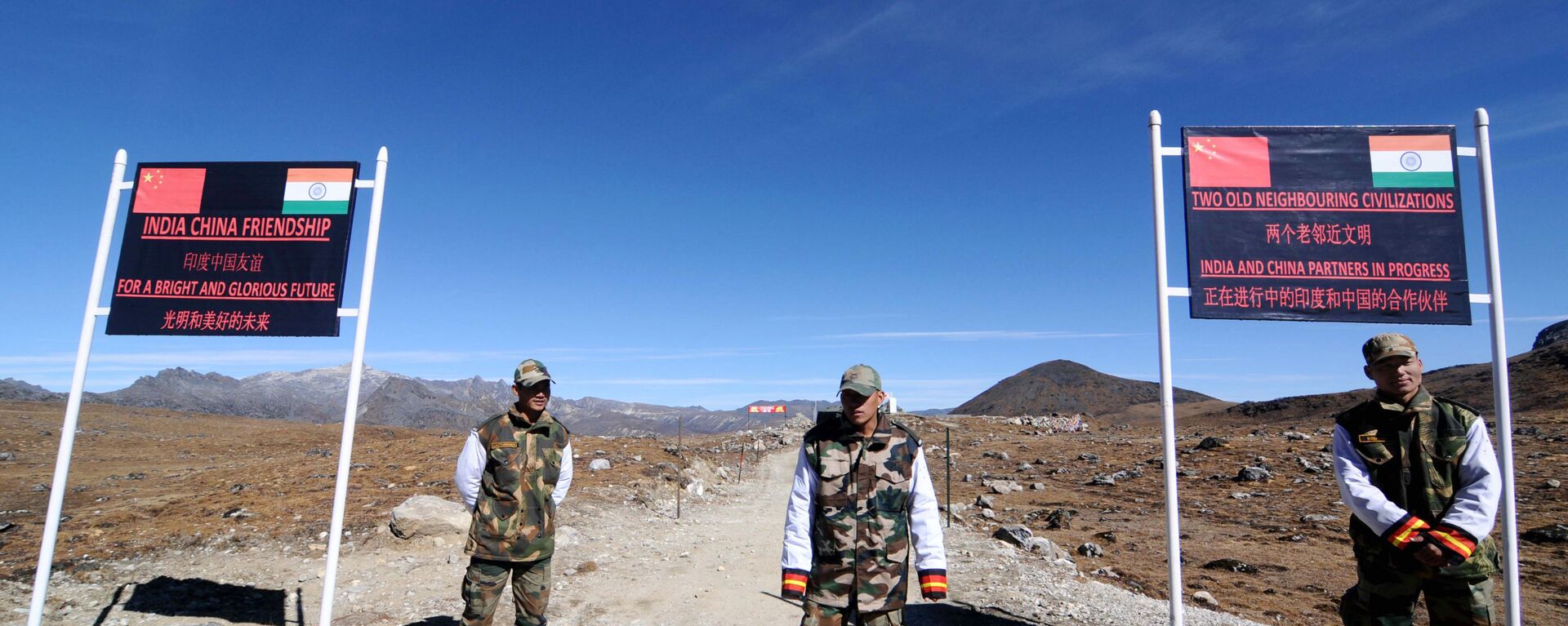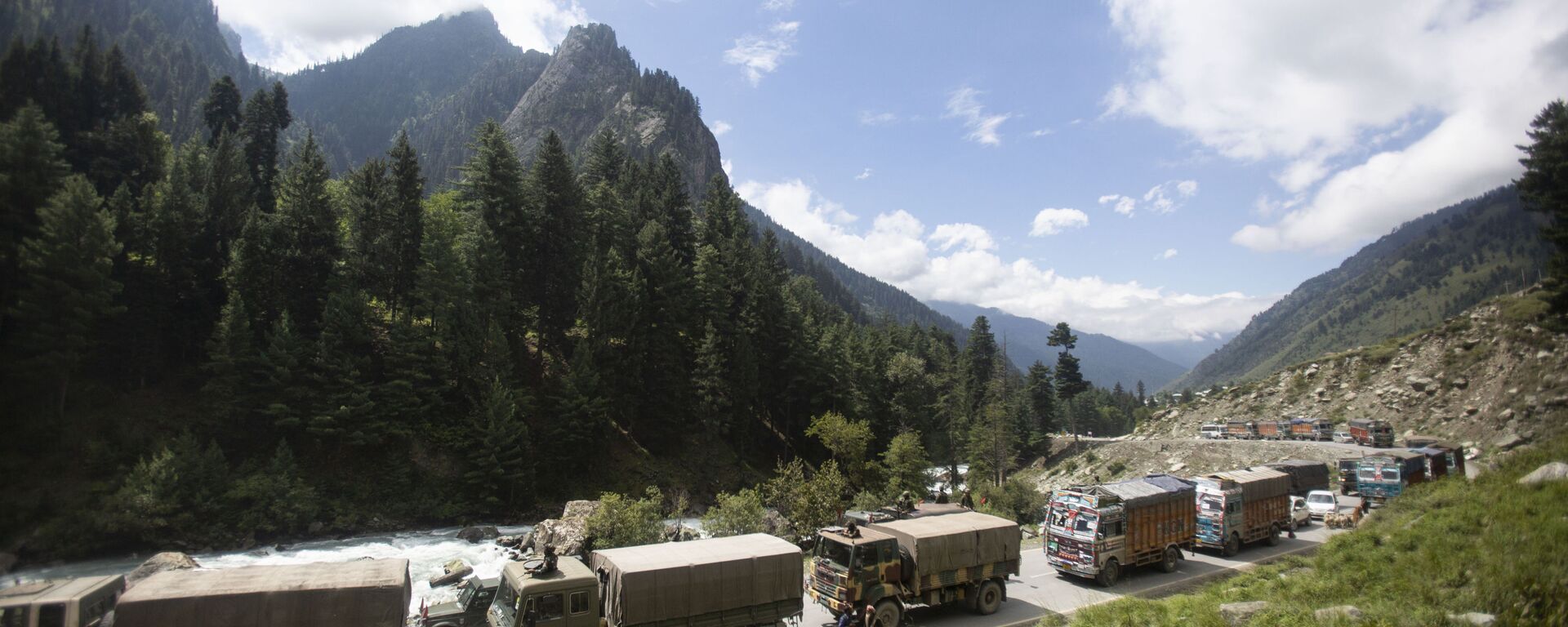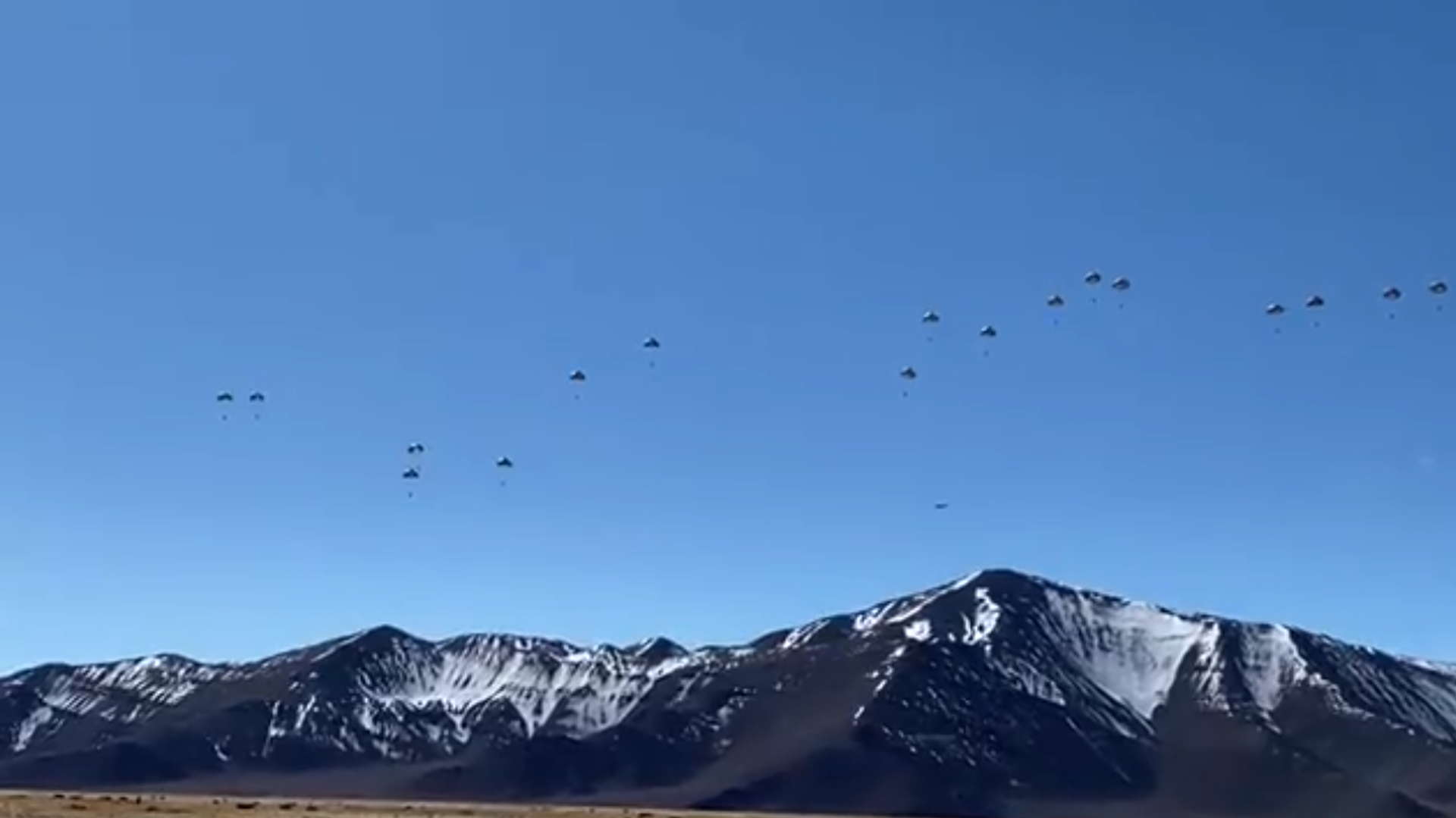https://sputnikglobe.com/20211201/national-interest-indian-parliament-refuses-to-allow-question-on-chinas-incursion-in-ladakh--1091165715.html
'National Interest': Indian Parliament Refuses to Allow Question on China's 'Incursion' In Ladakh
'National Interest': Indian Parliament Refuses to Allow Question on China's 'Incursion' In Ladakh
Sputnik International
In order for an MP to ask a question in Parliament, they have to give a notice of 15 days and indicate if they desire a written or verbal response. The... 01.12.2021, Sputnik International
2021-12-01T11:08+0000
2021-12-01T11:08+0000
2021-12-01T11:08+0000
pla
narendra modi
rajnath singh
ladakh standoff
china
subrahmanyam jaishankar
https://cdn1.img.sputnikglobe.com/img/07e5/0b/02/1090413084_0:7:1275:724_1920x0_80_0_0_bdda90cc56a634ada65da5c0b7052368.png
Subramanian Swamy, a lawmaker from the ruling Bharatiya Janata Party (BJP), on Wednesday said that he was refused permission by the Indian Parliament to ask about the Chinese People’s Liberation Army (PLA) "crossing" the Line of Actual Control (LAC), the disputed border between the two countries.Swamy, a member of the Parliament’s Upper House (Rajya Sabha), further claimed that he was told that asking a question about the ongoing Ladakh border dispute wasn’t in “national interest."Swamy’s charge against the government comes amid a stalemate on the border dispute discussions between China and India. The most recent round of military-commander level talks between the Indian Army and PLA on 10 October ended in a failure.A Working Mechanism for Consultation and Coordination on India-China Border Affairs (WMCC) meeting held on 18 November sought to repair the damage, with officials saying that military commanders from both sides would convene again in a bid to resolve the standoff, which began in May last year.PLA’s Western Command back in October accused India of persisting in its “unreasonable and unrealistic demands” and urged its western neighbour to “cherish the hard-won situation in China-India border areas,” as per an official statement.India, on the other hand, said that Beijing was unable to provide “forward-looking” suggestions to resolve the border standoff during the meeting.The Indian government has consistently accused Beijing of “disturbing” peace along the LAC by trying to “unilaterally alter the status quo.” However, officially, there hasn’t been any confirmation so far whether Chinese troops have encroached upon the territory traditionally patrolled by India and viewed as falling within its side of the LAC.Indian Prime Minister Narendra Modi claimed during an all-party meeting in June last year that attempts by China to transgress into the Indian territory had been foiled by the Indian forces. The remarks were made after the deadly clashes between Indian and Chinese troops in Galwan Valley, one of the friction points. Twenty Indian soldiers and four PLA troops were killed as a result of the clashes.In September last year, Indian Defence Minister Rajnath Singh said in Parliament that China made “several attempts to transgress the LAC” earlier that year.India's Foreign Minister Subrahmanyam Jaishankar, meanwhile, said during an event in October this year that “China's provocative behaviour, unilateral attempts to alter the status quo resulted in disturbance of peace along LAC in eastern Ladakh."Amid New Delhi’s alleged reluctance to acknowledge the alleged transgression in the eastern Ladakh region, reports in Indian media claim that Chinese troops have been stationed well inside India's perceived LAC in at least two areas — Hot Springs and Depsang Plains.According to New Delhi, India and China have “disengaged” their troops from other friction points, which include the patrolling points in the Galwan Valley, Gogra Post and Pangong Tso Lake. Both sides agreed to disengage their troops from the major friction points in Ladakh in February this year.While New Delhi blames China for instigating the military standoff, Beijing says that New Delhi’s “forward policy” and its illegal encroachments upon Chinese territory are the “root cause” of the dispute.
https://sputnikglobe.com/20211011/blame-game-erupts-as-india-china-fail-to-make-headway-in-military-talks-to-cool-border-tensions-1089824708.html
https://sputnikglobe.com/20210112/india-ready-to-meet-any-challenges-on-china-border-says-ladakh-row-profoundly-disturbed-trust-1081738637.html
ladakh standoff
china
Sputnik International
feedback@sputniknews.com
+74956456601
MIA „Rosiya Segodnya“
2021
News
en_EN
Sputnik International
feedback@sputniknews.com
+74956456601
MIA „Rosiya Segodnya“
Sputnik International
feedback@sputniknews.com
+74956456601
MIA „Rosiya Segodnya“
pla, narendra modi, rajnath singh, ladakh standoff, china, subrahmanyam jaishankar
pla, narendra modi, rajnath singh, ladakh standoff, china, subrahmanyam jaishankar
'National Interest': Indian Parliament Refuses to Allow Question on China's 'Incursion' In Ladakh
In order for an MP to ask a question in Parliament, they have to give a notice of 15 days and indicate if they desire a written or verbal response. The decision to admit or reject questions lies with the secretary-general, who reports to the house speaker. India’s Vice-President M Venkaiah Naidu is currently the chair of Upper House.
Subramanian Swamy, a lawmaker from the ruling Bharatiya Janata Party (BJP), on Wednesday said that he was refused permission by the Indian Parliament to ask about the Chinese People’s Liberation Army (PLA) "crossing" the Line of Actual Control (LAC), the disputed border between the two countries.
Swamy, a member of the Parliament’s Upper House (Rajya Sabha), further claimed that he was told that asking a question about the ongoing Ladakh border dispute wasn’t in “national interest."
Swamy’s charge against the government comes amid a stalemate on the border dispute discussions between China and India. The most recent round of military-commander level talks between the Indian Army and PLA on 10 October ended in a failure.
A Working Mechanism for Consultation and Coordination on India-China Border Affairs (WMCC) meeting held on 18 November sought to repair the damage, with officials saying that military commanders from both sides would convene again in a bid to resolve the standoff, which began in May last year.
PLA’s Western Command back in October accused India of persisting in its “unreasonable and unrealistic demands” and urged its western neighbour to “cherish the hard-won situation in China-India border areas,” as per an official statement.

11 October 2021, 08:59 GMT
India, on the other hand, said that Beijing was unable to provide “forward-looking” suggestions to resolve the border standoff during the meeting.
The Indian government has consistently accused Beijing of “disturbing” peace along the LAC by trying to “unilaterally alter the status quo.” However, officially, there hasn’t been any confirmation so far whether Chinese troops have encroached upon the territory traditionally patrolled by India and viewed as falling within its side of the LAC.
Indian Prime Minister Narendra Modi claimed during an all-party meeting in June last year that attempts by China to transgress into the Indian territory had been foiled by the Indian forces. The remarks were made after the deadly clashes between Indian and Chinese troops in
Galwan Valley, one of the friction points. Twenty Indian soldiers and four PLA troops were killed as a result of the clashes.
In September last year,
Indian Defence Minister Rajnath Singh said in Parliament that China made “several attempts to transgress the LAC” earlier that year.
“These attempts were detected early and consequently responded to appropriately by our armed forces,” he said.
India's Foreign Minister Subrahmanyam Jaishankar, meanwhile, said during an event in October this year that “China's provocative behaviour, unilateral attempts to alter the status quo resulted in disturbance of peace along LAC in eastern Ladakh."

12 January 2021, 09:29 GMT
Amid New Delhi’s alleged reluctance to acknowledge the alleged transgression in the eastern Ladakh region, reports in Indian media claim that Chinese troops have been stationed well inside India's perceived LAC in at least two areas — Hot Springs and Depsang Plains.
According to New Delhi, India and China have “disengaged” their troops from other friction points, which include the patrolling points in the Galwan Valley, Gogra Post and Pangong Tso Lake. Both sides agreed to disengage their troops from the major friction points in Ladakh in February this year.
While New Delhi blames China for instigating the military standoff, Beijing says that New Delhi’s “forward policy” and its illegal encroachments upon Chinese territory are the “root cause” of the dispute.





